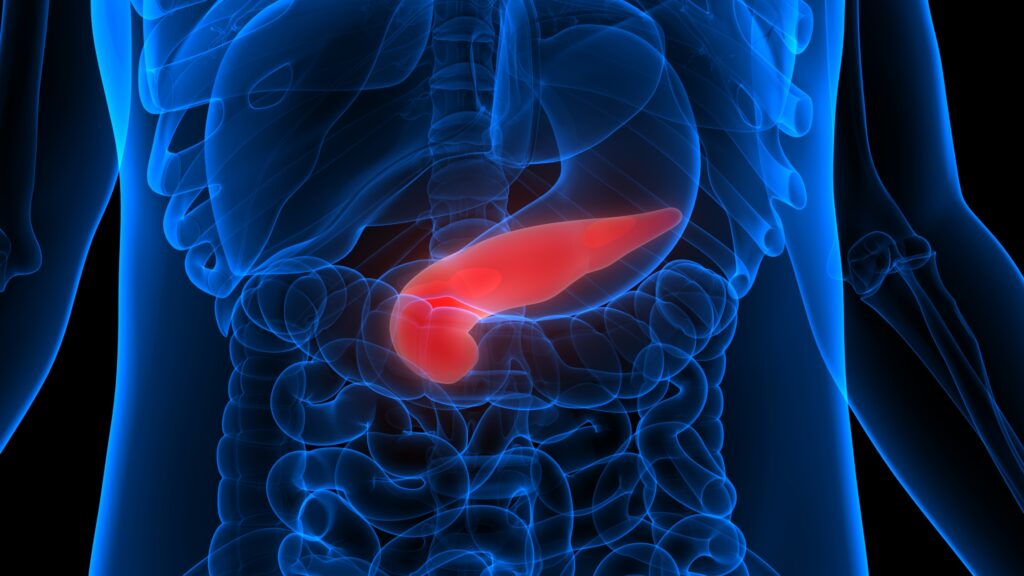A dramatic global increase in the number of adults suffering from type 2 diabetes has been observed in the last 30 years.1 Between 1980 and 2008, the prevalence of type 2 diabetes more than doubled, and it is estimated that the prevalence will be more than 500 million by 2030.1–3 Additionally, type 2 diabetes has considerable healthcare cost and significantly impacts quality of life.4,5 All of these factors have led to an increased focus on diabetes prevention and management.
A dramatic global increase in the number of adults suffering from type 2 diabetes has been observed in the last 30 years.1 Between 1980 and 2008, the prevalence of type 2 diabetes more than doubled, and it is estimated that the prevalence will be more than 500 million by 2030.1–3 Additionally, type 2 diabetes has considerable healthcare cost and significantly impacts quality of life.4,5 All of these factors have led to an increased focus on diabetes prevention and management.
The rise in diabetes is multifactorial.4,6,7 Proposed variables that have led to an increase in prevalence include an ageing population, dietary changes and increasing levels of urbanisation and sedentary lifestyles.1,3,8–10 Additionally, genetics has been suggested to play a large role. For example, a high concordance rate of diabetes between monozygotic twins and an increased likelihood of first-degree relatives developing the disease support evidence for a genetic component.11–14 However, one of the most salient associations of type 2 diabetes is excessive weight gain.15–17 As a result, considerable attention has been given to weight management through the promotion of healthy lifestyles.18
Based on this association of weight gain and diabetes, one of the primary ways to prevent or delay the onset of type 2 diabetes is to prevent excessive weight gain.18,19 For individuals who have type 2 diabetes, weight loss is also highly recommended.18 For example, a remission in type 2 diabetes has been observed in patients who have lost weight and maintained these changes.19 Added sugars have received considerable attention due to their association with weight gain. For this reason, strategies to reduce added sugars have been developed. Non-caloric or low-calorie sweeteners (LCS) have been used to help prevent and control weight gain.8,20 LCS are used as an alternative to sugar because they contain less calories.21,22 Several LCS are available on the market today. Aspartame is possibly the most well known of these. Other LCS are tagalose, neotame, sucralose, saccharin, luo han guo extract, stevia and acesulfame K.23,24
Reasons for Use Reduction in Caloric Intake
LCS offer a practical method for promoting a reduction in caloric intake.8,20 They also offer a preventative measure to combat excessive weight gain in at-risk individuals. Foods and beverages that contain LCS offer a better alternative for individuals trying to both prevent and lose excessive weight by making a relatively simple dietary change.8,20 Small changes such as this have been hypothesised to impact the high prevalence of obesity.25–27 For example, changes as small as 100 calories a day have been suggested to reverse the trends in the obesity epidemic.26 The replacement of added sugars with LCS is consistent with this approach.
Treatment of Diabetes
Because added sugars are a source of increased carbohydrate intake, safe and easy ways to decrease their consumption is central to treatment. The use of LCS offers a practical approach to support the reduction of carbohydrate intake for patients with type 2 diabetes. By replacing added sugars with LCS, individuals with diabetes and prediabetes may better be able to manage their blood glucose levels and reduce their bodyweight. The Academy of Nutrition and Dietetics, the American Heart Association and the American Diabetes Association consider US Food and Drug Administration (FDA)-approved LCS to be safe for consumption for individuals with diabetes.24,28,29 In addition, the Academy refers to LCS as ‘free foods’ because they do not raise blood glucose levels and offer a safe alternative to natural sugars.28
Other Benefits
The use of LCS may also help manage reactive hyperglycaemia in individuals who do not have type 2 diabetes.30 For these patients, excessive sugar intake leads to increased insulin secretion, which may lead to more serious health complications. LCS offer a viable way for these individuals to help prevent this response. Excessive intake of sugar and other fermentable carbohydrates also has a detrimental effect on oral and dental hygiene and can lead to cavities, plaque buildup and gum disease.31,32 Other factors associated with the formation of dental caries include length of exposure to the teeth while in the mouth, stickiness of the food, strength of the tooth enamel, frequency of consumption, oral hygiene and microbiology in the mouth. If ignored, gum diseases like gingivitis may lead to far more serious health complications.33,34 LCS can help to improve oral hygiene and dental care.
Low-calorie-sweetener-associated Concerns
Increased Appetite
While there are multiple health benefits associated with LCS, some concerns about their use have also been raised. One of the most notable concerns is that the consumption of LCS increases appetite.35–38 It has been theorised that individuals overcompensate for the calories that have been saved. The reason for this overcompensation may be the knowledge that fewer calories are consumed, which leads to increased caloric intake.35 Others have theorised that a more physiological response occurs.39,40 For example, it has been suggested that LCS differ from sucrose in terms of satiety or feelings of fullness.41
Multiple studies have been conducted to examine these speculations.35,41–47 No differences in hunger have been shown between LCS and meals sweetened with sucrose in humans.45–47 LCS have not been shown to increase appetite.34,42,44,45 Similarly, LCS have not been shown to increase caloric intake through overcompensation.46 For example, a randomised trial was conducted that provided participants with either a caloric sweetener or aspartame preload condition.48 Participants were given either sucrose or a low-calorie sweetener in a pill form before a meal. Those who consumed aspartame preloads did not compensate by eating more than the caloric sweetener group. Additionally, both conditions reported similar levels of satiety following meals. No differences were observed between conditions.>sup>48
Weight Gain
Similar to the matter of increased appetite, it has also been reported that LCS may cause weight gain.49 Rodent studies have shown that lowcalorie sweetener consumption can promote excessive weight gain in male rats.49 A positive correlation between low-calorie sweetener consumption and bodyweight has also been shown.50 Based on this epidemiological evidence, it has been suggested that low-calorie sweetener consumption increases the likelihood of being obese.51
Epidemiological studies are conducted only in order to develop hypotheses and not to establish causality.52 Randomised controlled trials are required to test the generated hypotheses.52 Based on randomised trials in humans, no evidence supports the claim that LCS cause higher bodyweights in adults.53,54 In fact, randomised controlled trials suggest that the use of LCS may increase adherence to low-calorie diets and improve bodyweight and weight loss maintenance over time.20,55
Insulin and Hormonal Response
The sweet taste of LCS can be on average several hundred times sweeter than natural sugars, which some have suggested may lead to oversensitivity to sweetness. This oversensitivity has been hypothesised to induce increased hormonal secretion.56 Specifically, rodent studies have suggested that LCS may have an effect on glucoregulatory hormones.57,58 These studies reported that LCS may be nutritionally active and signal a functional taste reception system, which in turn increases sugar absorption during meals. Discovering mechanisms that cause an increase in sugar absorption could have significant implications for the treatment of diabetes and obesity.57 However, human studies have not supported these findings and have found no effect of LCS on gut hormone secretion.59,60 Furthermore, a recent review by the Academy of Nutrition and Dietetics reported that LCS have not been found to affect the glycaemic responses in people with type 2 diabetes.28
Other Concerns
As with most additives, there have been reports that the ingestion of LCS may result in allergic reactions or increased sensitivity that may lead to more serious health concerns.61 While anecdotal experiences of low-calorie sweetener senstivity and allergic reactions have been reported, these findings have not been confirmed by carefully controlled scientific studies.62,63
Summary
Concerns have been raised in terms of the use of LCS based on data from rodent and correlational studies. Although studies of this nature provide direction for hypotheses, they are not sufficient to draw conclusions about causality in humans.52 Current findings have documented that LCS are safe for consumption in a normal diet. These conclusions are consistent with recommendations from both the American Diabetes Association and the Academy for Nutrition and Dietetics.24, 29
Low-calorie Sweeteners and Diabetes – Future Research
While the use of LCS for the prevention and treatment of diabetes and weight loss is promising, there is a paucity of high-quality clinical research in this important area. Much of the data regarding LCS and their role in diabetes is from observational studies, which have significant research limitations. There is a clear need for randomised controlled trials to further advance the understanding of the role that LCS plays in diabetes prevention and management. For example, additional studies on the metabolic effects of LCS in the body, especially in patients with type 2 diabetes, could prove useful. Additional effectiveness research in the treatment of type 2 diabetes using LCS would also be beneficial to improve the flexibility and quality of treatment options.
Conclusion
Engaging in a healthy lifestyle is central to the prevention and management of type 2 diabetes.64 Steps to improve one’s diet, increase levels of physical activity and maintain a healthy weight are consistent with these efforts. The use of LCS can assist individuals in reducing caloric intake and thereby promote a healthier weight. However, LCS are not appetite suppressants. Their ultimate effects will depend on their integration as part of a healthy lifestyle.24,64
LCS can play an important role in diabetes prevention and management. Substituting sugars with LCS provides patients with type 2 diabetes much flexibility in their health goals and personal dietary choices.














